Iran Raps Burning Of Quran In Sweden
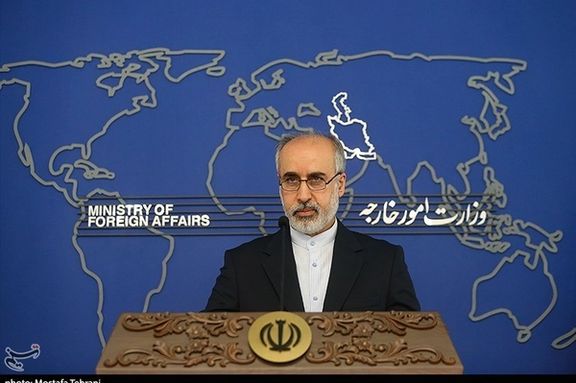
Iran criticized the Swedish government for permitting disrespect to the Muslim holy book, the Quran.

Iran criticized the Swedish government for permitting disrespect to the Muslim holy book, the Quran.
Two men publicly burned the Quran outside Stockholm's central mosque on Wednesday, an act approved by a Swedish court.
It was deliberately timed to coincide with the significant Muslim holiday, Eid al-Adha, further magnifying the incident's significance.
Urging the European country to take responsibility and address the issue seriously, Iran's Foreign Ministry Spokesperson Nasser Kanaani said: “Creating a platform for the repetition of sacrilege against celestial sanctities, especially during the sacred days of the Islamic world and the gathering of millions of Muslims at the world congress of hajj, is a provocative, unacceptable act.
“Insulting heavenly scriptures is a manifestation of violence, hatred, and contrary to the fundamental values of human rights," disregarding the regime's systematic oppression of women and minorities under its own jurisdiction and its generally appalling human rights record.
Some 200 onlookers witnessed one of the two protesters tearing up pages of a copy of the Koran and wiping his shoes with it before putting bacon in it and setting the book on fire, while the other spoke into a megaphone.
Some of those present shouted "God is Great" in Arabic to protest against the burning, and one man was detained by police after he attempted to throw a rock.
Meanwhile, Morocco recalled its ambassador to Sweden late Wednesday to protest the desecration.
Turkey’s foreign minister also criticized the move saying it is “unacceptable to allow anti-Islam protests in the name of freedom of expression”.
Burning religious texts is "disrespectful and hurtful", the deputy spokesperson for the US State Department told reporters in a daily briefing as well. "What might be legal is certainly not necessarily appropriate," Vedant Patel said.
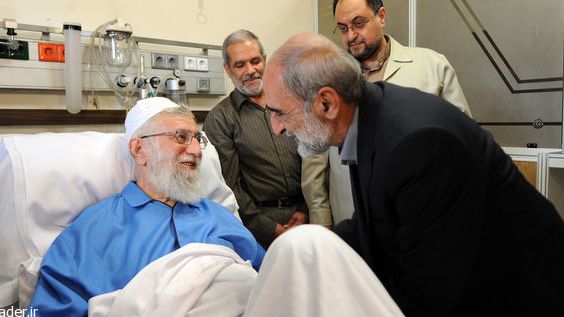
Our war against “the enemy” will end only if we give up real Islam, or if the United States gives up its animosity, an Iranian firebrand ideologue has said.
The man is Hossein Shariatmadari, a hardliner trusted by Supreme Leader Ali Khamenei and appointed by him to run the Kayhan Daily in Tehran, the regime’s most uncompromising media outlet.
While Shariatmadari can be regarded as an extremist who does not mince words and is less diplomatic than the 84-year-old autocrat who appointed him, his ideas cannot be dismissed. As long as Khamenei is alive, Shariatmadari’s words are closer to his thinking than what any Islamic Republic diplomat might say.
Addressing a congregation marking the death anniversary of an ayatollah assassinated four decades ago, Kayhan’s chief editor said that the kind of Islam the regime upholds is “not American Islam.” The difference between true Islam and ‘American Islam’, he claimed is pursuing justice. But for Khamenei justice means an unending war against Israel and the United States.
Any kind of Islam other than what Khamenei demands is fake according to the ideology of the Islamic Republic, which the aging autocrat defends with all the destructive means at his disposal. This was also in the heart of his animosity toward Saudi Arabia, which he many times described as a “corrupt” system because it cooperated with the United States, which protects Israel.
Shariatmadari said, “our war with the enemy is ever lasting and permanent, and we have achieved a lot from the beginning, but still have a long way to go.”
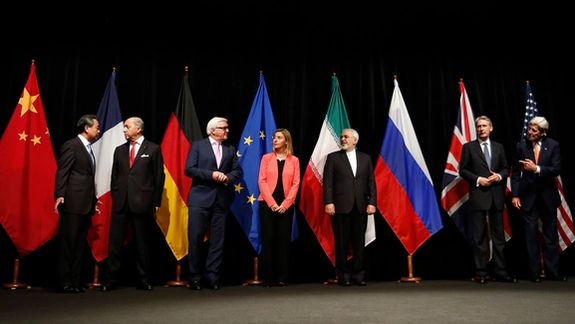
The Islamic regime has indeed armed and supported tens of thousands of militants throughout the region with the aim of defeating the United States and destroying Israel. It is also a few steps away from becoming a nuclear threshold state, if not outright producing nuclear weapons.
When President Barack Obama was crafting the JCPOA nuclear deal with Iran, his aides told the media that the President aimed higher than a nuclear deal. His ambitious goal was to use “the strategic opportunity” to try to convert Iran from foe to “friend”, as an influential media outlet put it at the time.
However, as soon as the deal was signed, the following year Iran’s Revolutionary Guard wrote ‘death to Israel’ on their missiles, and Obama had to pay hundreds of millions of dollars to get American hostages back.
In the approximately 18 months Obama was in office after the JCPOA was finalized in mid-2015, no strategic breakthrough took place. Iran got its billions from the deal and spent most of the money fueling the wars in Yemen, Syria and building up its proxy forces in Iraq, despite subtle hints of possible wider cooperation his diplomats gave during the nuclear talks.
The Biden administration after trying for two years to revive the JCPOA has apparently realized that Iran is not ready to play ball and is contemplating a limited agreement to nominally limit its nuclear program while the president fights for re-election.
But Khamenei is the one who defines the nature of US-Iranian relations. For him the concept of America and Israel being eternal enemies is almost sacred and he does not miss a chance to say so. On June 4, he once again revealed his lack of interest in any shift in policy, indirectly referring to a limited deal.
“Our young people should pay attention. The enmity of world arrogance will not disappear with tactical retrenchments. Some imagine that if we retreat on some issue, their enmity will decrease against us. This is a mistake.”
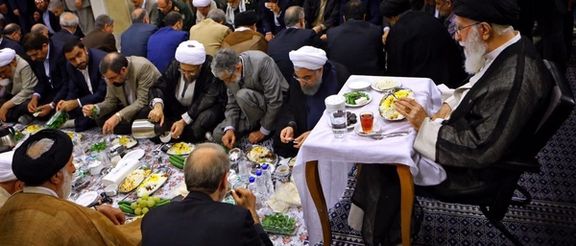
Reformist commentator Abbas Abdi told clerics to "stop adding insult to injury" in their sermons and statements after a clergyman said Iranians eat too much.
Abdi told the clerics in an article in Etemad newspaper: "If you cannot solve any of the people's problems, at least do not put more burdens on their shoulders."
Abdi's comments appeared to be a response to Expediency Council member and conservative cleric Gholamreza Mesbahi-Moghaddam who lashed out at the people for causing high inflation and told them on Sunday: Learn to live like the people of China who have only two meals every 24 hours."
He also claimed that the people of Iran have more resources than the Chinese, but the Chinese are content with what they have, and Iranians are expecting more every day.
Abdi responded by asking: "How many meals do you have in a day?
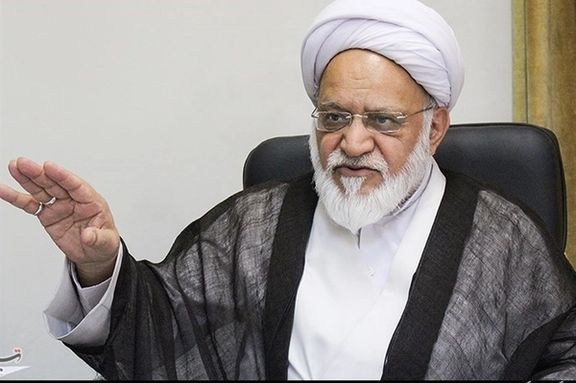
Mesbahi-Moghaddam’s comment came at a time when food prices have risen by around 100 percent since May 2022. Meat, dairy and fruit consumption has drastically decreased due to high prices.
Abdi also criticized the Friday Imam of Mashhad, the firebrand Ahmad Alamolhoda and father-in-law of President Ebrahim Raisi for saying "The more you pay Iranian workers, the more demands they will come up with."
Abdi said, the clerics usually interfere in many areas but the economy is not a subject in which the they can express unsubstantiated opinions. Abdi further charged: "There is no pay increase for the workers. The inflation rate was 48 percent last year and it is going to be around 55 to 60 percent this year. Have you added that much to the workers' wages?"
Meanwhile in another response the Chairman of the Sino-Iranian Chamber of Commerce Majid Reza Hariri said: "May I respectfully tell his Excellency Mesbahi-Moghaddam that the Chinese have four meals a day."
Only to be fair with Mesbahi-Moqaddam, Rouydad24 quoted him as having told Jamaran News that "People expect the inflation rate to rise, and this expectation coupled with the news about Iran's relations with the West and the failure of nuclear talks lead to an increase in the inflation rate."
In another development, former vice president Massoumeh Ebtekar wrote in Etemad newspaper: "Rising prices have broken the people's back," adding that "The people are tired of seeing the government prioritizing the issue of hijab over the problems of inflation and rising prices."
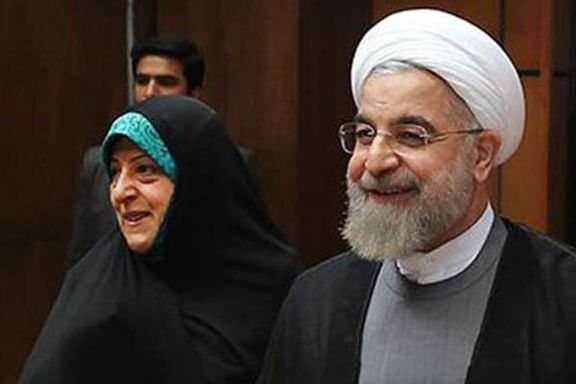
Ebtekar added: "A majority of Iranians just want to live a simple life and benefit from what the world can offer them. They do not wish to be dependent on the West or rely on the East. They are against lawlessness and promiscuity and at the same time they are against rigid rules of social life that the hardliners wish to impose on them.”
Ebtekar argued that "What people want is stability. An economic stability without sudden political changes that give rise to inflation, and political stability to ensure that laws do not change every day [to protect the interests of a certain group].
She said: "People hate lies in the corridors of power, they do not like the impossible promises politicians make, they hate powerful men playing with their state of mind and insulting their intelligence. They do not like to be humiliated and abused. They are tired of politicians who deny the impact of years of sanctions and rising prices."
Ebtekar who was a staunch revolutionary in the early years of the revolution and one of those who took American diplomats hostage, insisted that "The people are tired because their criticisms remain unheard and they see that the government has no plan for the future of young Iranians. Every time they have voted to improve the situation, powerful elements entered the scene to turn their joy into bitterness."
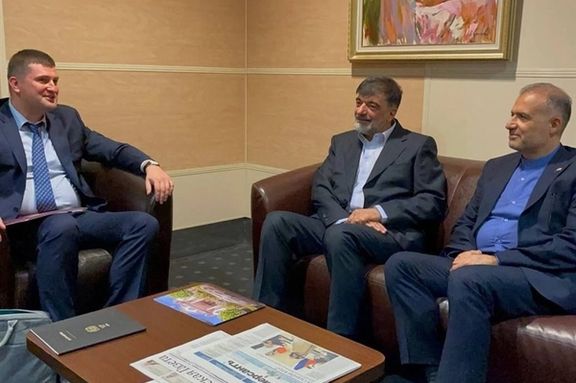
Iran's police chief visiting Moscow signed a long-term memorandum of understanding Wednesday with the director of the Russian National Guard (Rosgvardiya).
As part of his official visit Ahmadreza Radan, a general notorious for repressing protests, met with General Viktor Zolotov.
The TASS news agency reported that the two sides discussed cooperation and exchange of experiences in law enforcement and "fighting terrorism and extremism."
"The document provides for an exchange of experience in law enforcement, protection of crucial government facilities, combating terrorism and extremism, and providing support for measures to counter crime," the press service added.
Before the meeting, the Iran in delegation visited the central museum of Rosgvardiya to view the latest models of weapons and special equipment. In addition, dog trainers and members of the rapid reaction unit demonstrated their skills at neutralizing armed criminals.
Nikolai Patrushev, secretary of the Russian Security Council, also spoke earlier on Wednesday with Iran's police chief.
Earlier, Alexei Zhuravlev, First Deputy Chairman of the State Duma Committee on Defense, suggested that Radan would discuss with Patrushev the fight against terrorist organizations in Eurasia and alleged plots by Western intelligence agencies to destabilize" the situation in Russia and Iran.
“It is possible to exchange experience in countering the attempts of Western intelligence services to destabilize the situation and organize riots...We are cooperating productively both in Syria, where Tehran initially took the side of Damascus, and in the Caspian region, where together we determine the vectors of navigation and fishing traffic in this inland reservoir,” Zhuravlev noted on Tuesday.
According to him, Iran also has the experience of successfully resisting Western sanctions that it can share it with the Russian Federation.
Meanwhile local media in Iran reported that Mohammad Hossein Bagheri, the chief of the General Staff of the Iranian Armed Forces, had a phone conversation with Russian Defense Minister Sergei Shoigu, during which he invited him to visit Tehran.
Islamic Republic's Supreme Leader Ali Khamenei appointed Ahmadreza Radan as Iran's police chief in January after four months of popular anti-regime protests.
Most of Radan's ill reputation dates back to his role as police chief during the post-election unrest in 2009 and the performance of his men at the Kahrizak detention center where several young protesters including children of some state officials were killed as a result of police brutality.
Radan was sanctioned for his human rights violations by the United States as early as 2010 and has been blacklisted by the European Union.
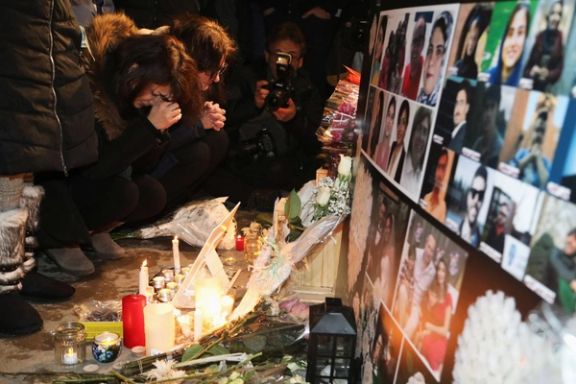
Families of victims of the Ukrainian airliner that was shot down by Iran’s Revolutionary Guard in 2020 seek to file a lawsuit against the regime in The Hague.
“With the expiration of the six-month period for the Islamic Republic of Iran to submit to binding arbitration for the downing of Flight PS752, it is anticipated that the case will be referred to the International Court of Justice in The Hague after June 28,” read a Wednesday statement by the Association of Families of Flight PS752 Victims.
Pinning hope on the International Coordination and Response Group for the victims -- comprised of Canada, Ukraine, Britain, and Sweden – the victims’ families said that “If the affected countries follow through as expected, it will mark the first time in history that the Islamic Republic will face an international tribunal for one of the thousands of crimes it has committed.”
In a statement issued on December 28, 2022, the International Coordination and Response Group called on Iran to submit to “binding arbitration of the dispute related to the downing of Flight PS752 by 2 surface-to-air missiles launched unlawfully and intentionally by members of Iran’s Islamic Revolutionary Guard Corps (IRGC) air defense unit...”
The victims’ families also organized a forum to discuss the issue and a rally in Toronto on July 5 to raise awareness about the tragic accident.
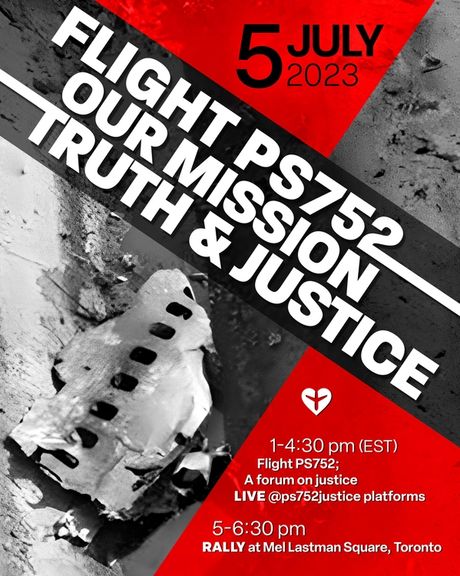
In September, lawyers representing the families submitted an Article 15 Communication to the Office of the Prosecutor of the International Criminal Court, providing information and evidence about crimes that occurred when Iranian missiles brought down the international flight.
The request was submitted in accordance with Article 15 of the Rome Statute, alleging that perpetrators have committed certain war crimes and crimes against humanity against the passengers and crew of flight PS752 and their surviving family members, including the war crimes of willful killing, intentionally directing attacks against the civilian population or civilian objects, as well as other inhumane acts.
The airliner was shot down by the IRGC on January 8, 2020, as it took off from Tehran’s Imam Khomeini International Airport. Only hours earlier, the IRGC had fired more than a dozen missiles at Iraqi bases hosting US and coalition troops in retaliation for the killing of the IRGC Qods Force Commander Ghasem Soleimani who was killed in Baghdad by a US drone strike just five days earlier. All 176 passengers and crew, including 63 Canadians as well as 82 Iranian citizens died in the disaster.
The Wednesday call to prosecute the perpetrators at the International Court of Justice came as the UN's top court said that the Islamic Republic has taken Canada to the ICJ for allegedly breaching Tehran's state immunity by designating it a sponsor of terrorism.
Canada listed Tehran as a terror sponsor in 2012 and severed diplomatic ties as relations frayed over Tehran's support for Bashar al-Assad's regime in Syria, its nuclear program, and threats against Israel. In 2016, a Canadian judge ordered Iran's non-diplomatic land and bank accounts in Canada to be handed over to victims of attacks by Hamas and Hezbollah.
Iran launched legal proceedings against Canada on Tuesday "concerning alleged violations of its immunities" as a sovereign state, the Hague-based ICJ said in a statement on Wednesday.
"Canada has adopted and implemented a series of legislative, executive, and judicial measures against Iran and its property in breach of its international obligations," Iran said in its filing to the court.
Iran has demanded compensation from Canada for the "violation of its international obligations,” and asked the ICJ to tell Ottawa to overrule any judgments against Tehran in Canadian courts.
The case is similar to the Iranian regime’s long-running claim at the ICJ against the United States for billions of dollars of assets frozen by US court rulings.
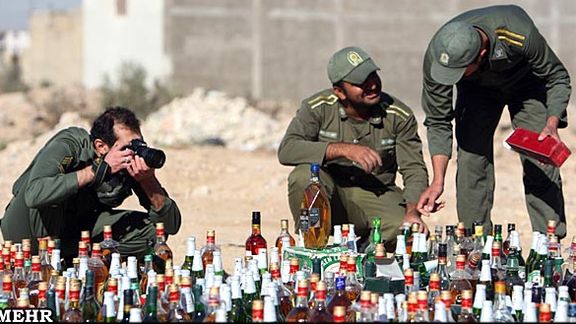
Amid rising deaths from bootleg alcohol across Iran, heated discussions have erupted on Persian social media about who is to blame for the deaths.
Homayoun Sameyah Najafabadi, a member of the parliament’s health committee, claimed Wednesday that Iran’s consumption of alcohol is higher than the countries where drinking alcohol is legal, likely driven by poor social and economic conditions which lead people to find escapism through substance abuse.
According to a survey by Iran Open Data, half of all adults regularly consume alcohol despite the Islamic regime’s ban, homemade alcohol a common way to skirt the bans. In 2018, a report by the World Health Organization (WHO) ranked Iran ninth among 189 countries for alcohol consumption per capita in spite of its being banned since 1979.
“Unfortunately, we see that the consumption of home-made alcoholic beverages in the country is increasing day by day, despite the many advertisements about its health issues, and this is undeniable,” said Najafabadi, a physician representing the Jewish minority at the parliament.
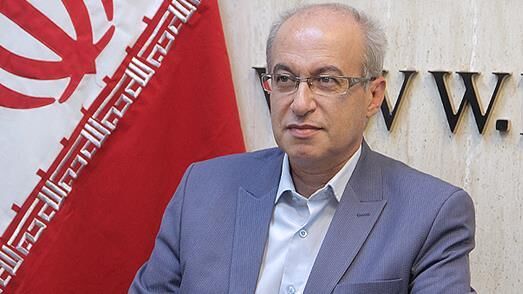
During the past several weeks, about 30 people have been killed and 250 people have been hospitalized for alcohol poisoning in different cities in provinces of Tehran, Alborz, Mazandaran and Hormozgan due to the consumption of methanol, the toxic variant of alcohol in contrast to ethanol.
Earlier on Wednesday, Amir Ahmadi, a prosecutor at one of the cities in Tehran province, said that two more people died and two lost their sight due to methanol poisoning.
Najafabadi says authorities need a better strategy to counter the consumption of alcohol beyond simply the threat of legal action, not least, the dangerous home brews which if made badly, can be fatal.
While the bans only feed people's hunger for what's prohibited, he said there are other reasons behind the rising consumption. “We must think about why alcohol consumption in Iran is even more than in countries where consumption is legal," he said.
There have always been reports of such poisonings across Iran, but the recent wave is significantly more widespread and deadlier, leading to rumors and speculations that the poisonings have been orchestrated by hardliners, like the wave of poisoning of schoolgirls which has affected hundreds of students throughout Iran since last year.
According to Deputy Health Minister Saeed Karimi, since the poisonings began on November 30, at least 13,000 female students were taken to medical centers due to suspected gas poisoning, while the regime has not done anything to find the perpetrators and instead cracked down on students, parents and teachers who protested the acts and journalists who reported them.
Now the current wave of alcohol poisonings has prompted different scenarios among Iranians. While hardliners believe those who drink alcohol to be sinners and criminals who deserve to suffer the consequences, ordinary people blame the regime for the deaths, underlining that most of the people who have died could be treated if they were taken to hospitals in time, but they hesitate because they are afraid of the consequences.
According to Abbas Masjedi Arani, the head of the Forensic Medicine Organization, 644 people died across Iran due to alcohol poisoning in the previous Iranian year (ended March 20), indicating a 30-percent rise compared with a year earlier.